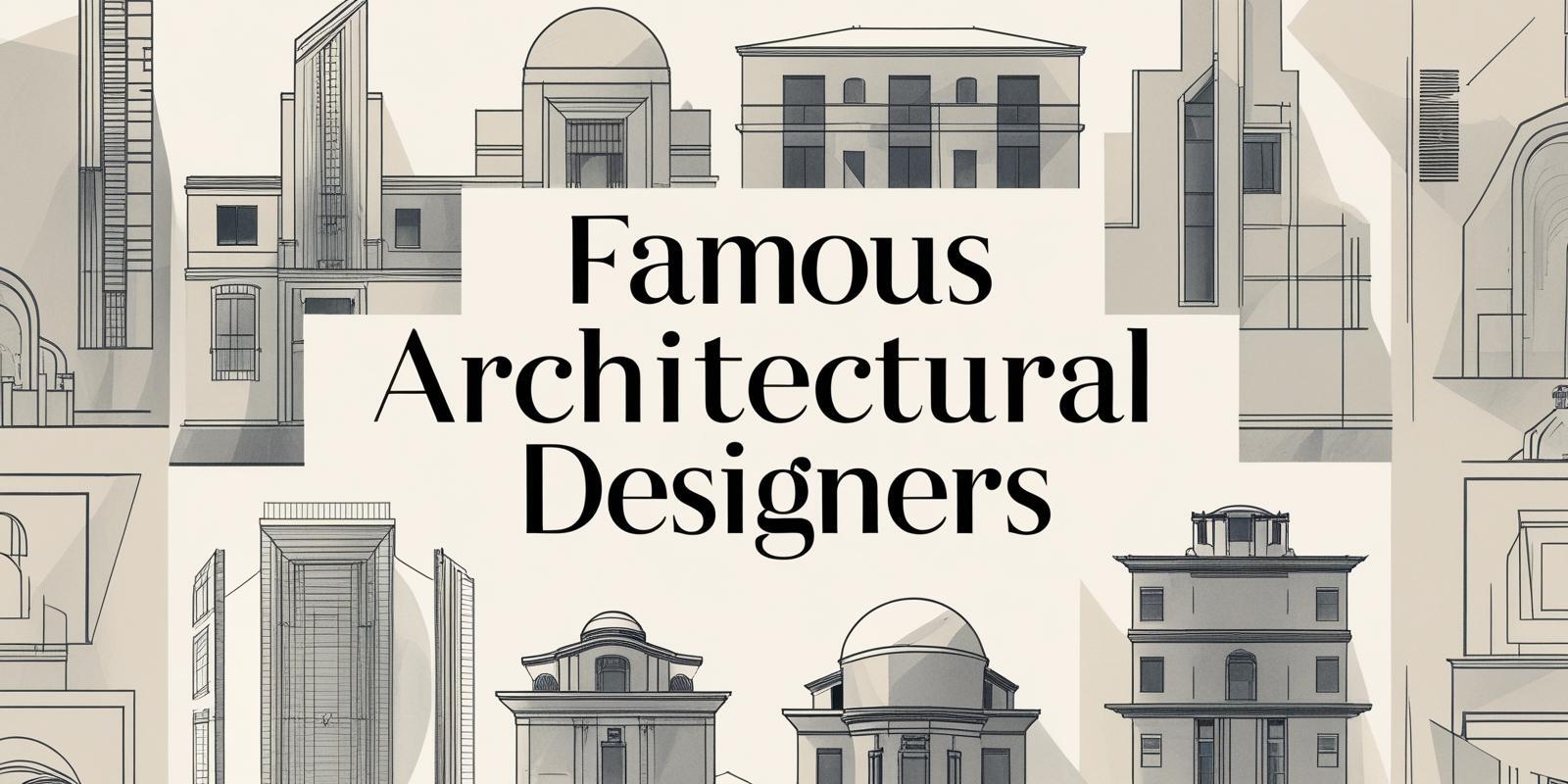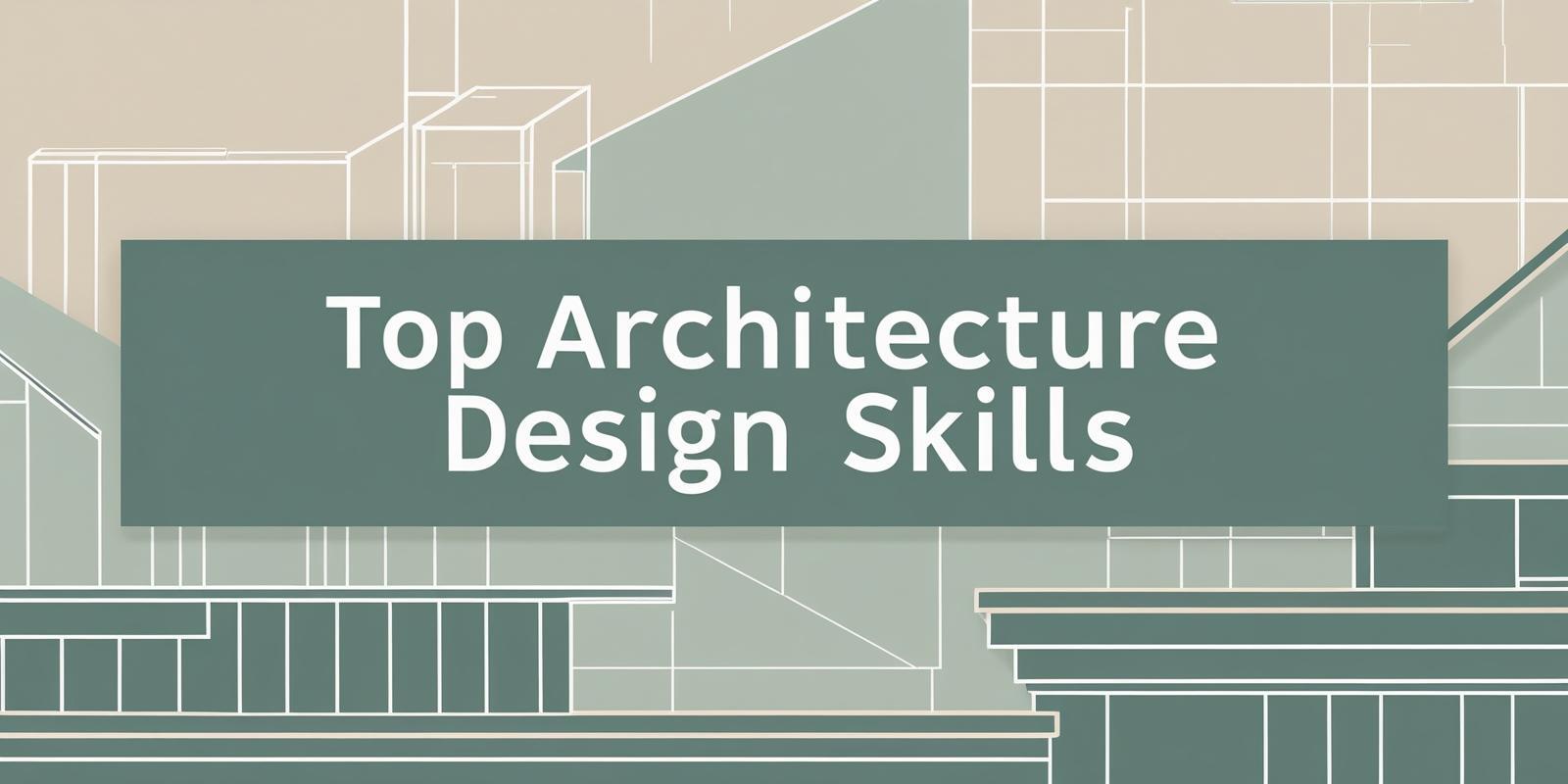.png)
In 2026, standing out in architecture interviews is more competitive than ever. According to the U.S. Bureau of Labor Statistics, architecture and engineering occupations are expected to produce approximately 195,000 job openings every year until 2033, and the median wage of architects is approximately $96,690. The increase in demand makes it important to learn and prepare for architectural design interview questions.
While applying to your first job or trying to become a leader in an architectural design company, showcasing your strengths in the architecture designing process, technical and soft skills of an architect designer, and your knowledge of the architectural design process will make you a top candidate.
What Are Interviewers Looking for in an Architectural Designer?

Interviewers are seeking a balance of creativity, problem-solving skills, and technical expertise.
-
The technical skills of an architecture designer include drafting, construction documentation, and code compliance.
-
Strong architecture design skills, like visualization, presentation, and rendering.
-
Proficiency in architecture design software such as Revit, AutoCAD, and Rhino.
-
Understanding of the architectural design process from concept to construction.
-
Good communication and collaboration are essential soft skills of an architect or designer.
-
Certifications, degrees, or a certificate in architectural design as proof of formal training.
What Are the Most Common Technical Interview Questions?
1. What assures that your design meets codes and regulations?
Ans: I study relevant local and international building codes early in the architectural design process. I use BIM software such as Revit to model for compliance and coordinate with structural and MEP consultants.
2. How do you integrate sustainable architecture design in your projects?
Ans: I give attention to passive design, local materials, and low-energy systems. In my last project, I considered the recycled materials and optimum placement of windows to minimize the environmental harm.
3. What architecture design principles guide your technical decisions?
Ans: The important ones are functionality and material honesty. These guarantee that every design would be balanced between user requirements and technicality.
4. What are the ways of avoiding mistakes in construction drawings?
Ans: I utilize quality control checklists and drawing reviews in a team. I also compare details with previous architectural designs for consistency.
5. So, what is the place of technology in technical accuracy?
Ans: Technology allows accuracy. I rely on architecture software for clash detection and use templates to reduce manual errors.
What Conceptual and Design Thinking Questions Should You Expect?

1. What does an architectural designer do during the concept stage?
Ans: They come up with the architecture design concept through the study of user requirements, site conditions, as well as client objectives. A well-developed architecture design concept guides every decision in the early design stages.
2. What is your approach to modern architectural design?
Ans: I focus on simplicity, transparency, and new materials. My approach to modern architecture design emphasizes clean lines, sustainable materials, and context-aware spaces.
3. What is your approach to balancing form and function?
Ans: Form follows function. My process begins with user flow and activities, and forms the space, keeping the context in consideration.
4. What do you do to prove your design ideas?
Ans: I request feedback at the early stages and test designs with diagrams, renderings, and physical or digital models.
5. What is your process of incorporating client/user feedback?
Ans: I conduct frequent review meetings, and changes are documented to ensure that they are in line with the expectations. Adaptability is part of good architectural design.
What Are Common Portfolio-Based Questions?
1. Which project best demonstrates your skills as an architectural designer?
Ans: My urban housing proposal showcases my ability to apply architecture design principles and effectively use architecture design software.
2. How do your portfolio pieces meet real-world requirements?
Ans: They reflect realistic constraints, budget, regulations, and site issues. This aligns with the architectural designer jobs and requirements.
3. How do you decide what to include in your portfolio?
Ans: I focus on diversity and impact. I include both academic and professional projects that demonstrate key architecture design skills.
4. What’s your process for presenting your portfolio in interviews?
Ans: I tailor the portfolio to the firm. I explain project goals, my role, and how I contributed to the architectural design services delivered.
What Software and Tool-Based Questions Are Common?

1. Which architecture software are you most proficient in?
Ans: Revit for BIM, Rhino for form-finding, and Lumion for rendering. These enhance both conceptual and technical delivery.
2. How do you stay updated with new tools?
Ans: I attend webinars, try beta tools, and follow forums like ArchDaily and RevitCity to keep my architecture design software skills current.
3. Have you used scripting or automation in projects?
Ans: Yes, I’ve used Grasshopper to automate facade pattern variations and reduce design time.
4. How do you collaborate with teams using digital tools?
Ans: I share models via cloud platforms and manage revisions collaboratively. This boosts coordination in architectural design companies.
What Are Common Soft Skills & Team Collaboration Questions?
1. Tell us about a time you resolved a team conflict.
Ans: A miscommunication with an engineer caused rework. I initiated a coordination meeting and proposed a shared task list. It reflected strong soft skills of an architect-designer.
2. How do you explain technical concepts to clients?
Ans: I use plain language, diagrams, and 3D visuals. It helps make complex ideas accessible.
3. Describe your role in a collaborative team project.
Ans: I often take on the coordinator role. I track progress and ensure the team follows the architectural design concept smoothly.
4. What does an architectural designer do?
Ans: An architectural designer develops building plans that merge creativity with practicality. They ensure code compliance and collaborate with clients and engineers to bring projects from idea to reality.
How Do You Prepare for Scenario-Based and Problem-Solving Questions?
1. How would you design a compact co-working space for freelancers?
Ans: I’d focus on flexibility. Modular furniture, smart lighting, and natural ventilation would make the space efficient and cost-effective.
2. How would you adapt to designing in a region with unfamiliar climate needs?
Ans: I’d study local architecture and consult climate data. I’d apply sustainable architecture design principles like passive ventilation.
3. What would you do if a client keeps requesting major changes mid-project?
Ans: I’d clarify the impact of each request and document changes. I’d also recommend solutions that align with the agreed scope.
4. You’ve been asked to lead a small team for a housing project. What’s your approach?
Ans: I’d start with clear role delegation and establish shared goals. I’d guide the team through each phase of the architectural design process.
Conclusion
Success in interview questions in architectural design comes down to preparation. Show that you understand the full lifecycle of architectural designs, from initial sketches to technical documentation. Use your answers to highlight both your architecture design skills and how you meet key architectural designer job requirements. If you approach these architectural design interview questions with thoughtful, structured answers, you’ll increase your chances of landing your next opportunity.
Explore the Building Information Modeling Course for Architects by Novatr and join the next wave of sustainable designers reshaping our world.
Visit our resource page to get started and explore expert guidance.
Was this content helpful to you



.jpg)





.png)

